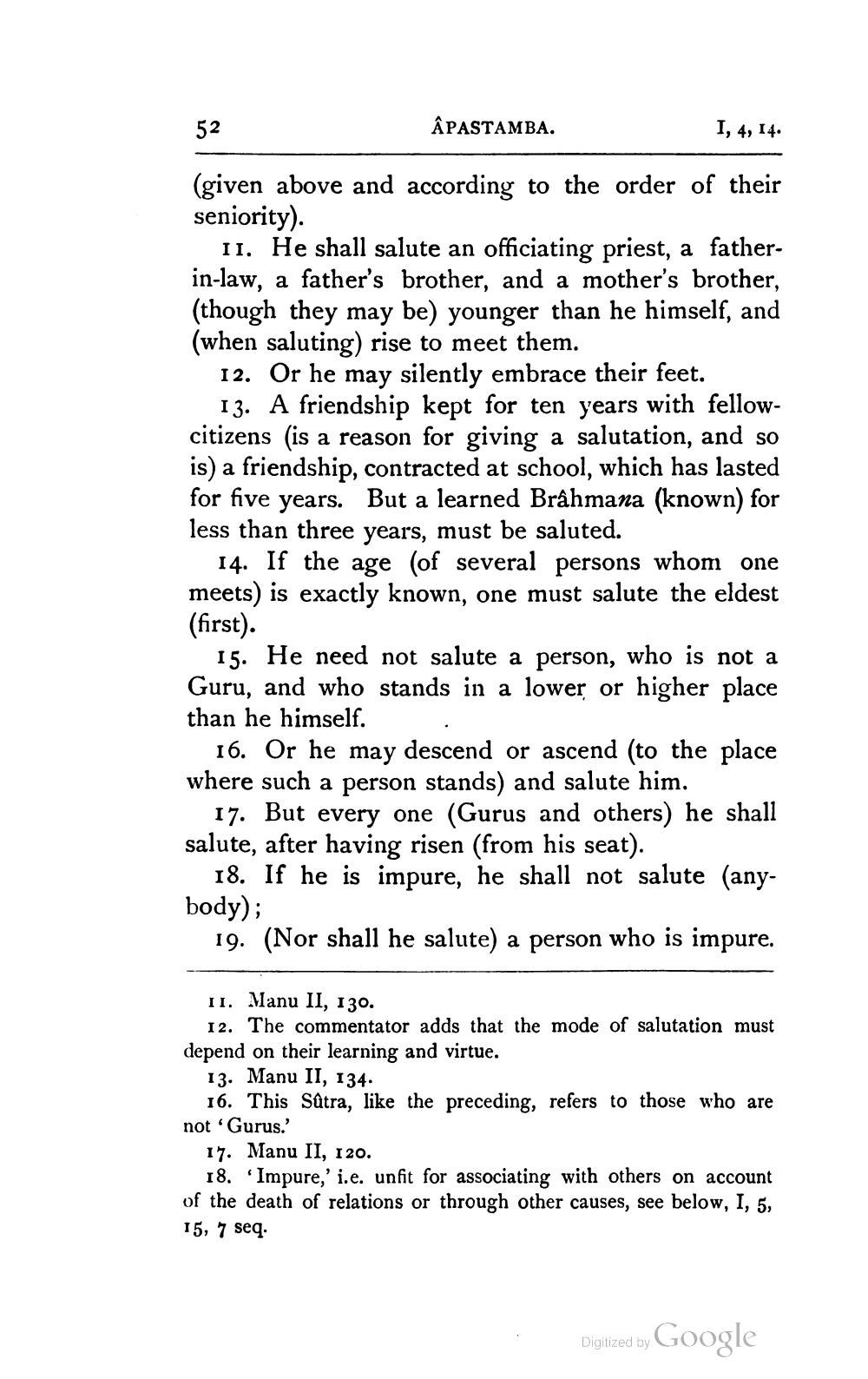________________
52
ÂPASTAMBA.
I, 4, 14.
(given above and according to the order of their seniority).
II. He shall salute an officiating priest, a fatherin-law, a father's brother, and a mother's brother, (though they may be) younger than he himself, and (when saluting) rise to meet them.
12. Or he may silently embrace their feet.
13. A friendship kept for ten years with fellowcitizens (is a reason for giving a salutation, and so is) a friendship, contracted at school, which has lasted for five years. But a learned Brâhmana (known) for less than three years, must be saluted.
14. If the age of several persons whom one meets) is exactly known, one must salute the eldest (first).
15. He need not salute a person, who is not a Guru, and who stands in a lower or higher place than he himself.
16. Or he may descend or ascend (to the place where such a person stands) and salute him.
17. But every one (Gurus and others) he shall salute, after having risen (from his seat).
18. If he is impure, he shall not salute (anybody);
19. (Nor shall he salute) a person who is impure.
11. Manu II, 130.
12. The commentator adds that the mode of salutation must depend on their learning and virtue.
13. Manu II, 134.
16. This Sûtra, like the preceding, refers to those who are not Gurus.'
17. Manu II, 120.
18. Impure,' i.e. unfit for associating with others on account of the death of relations or through other causes, see below, I, 5, 15, 7 seq.
Digitized by Google




